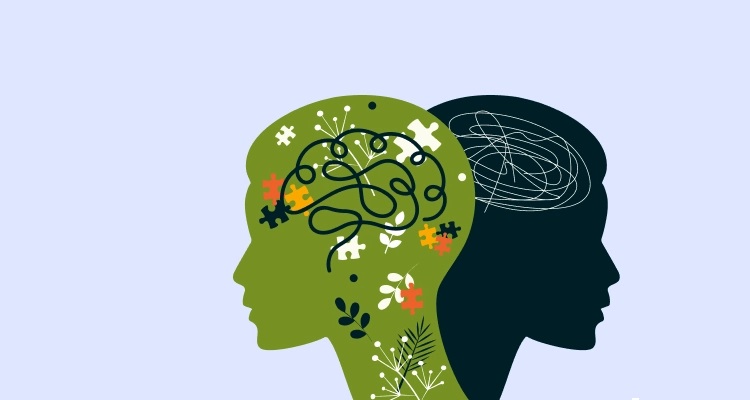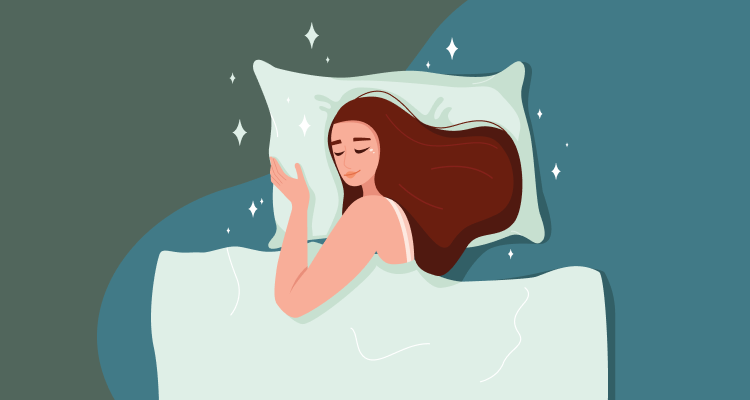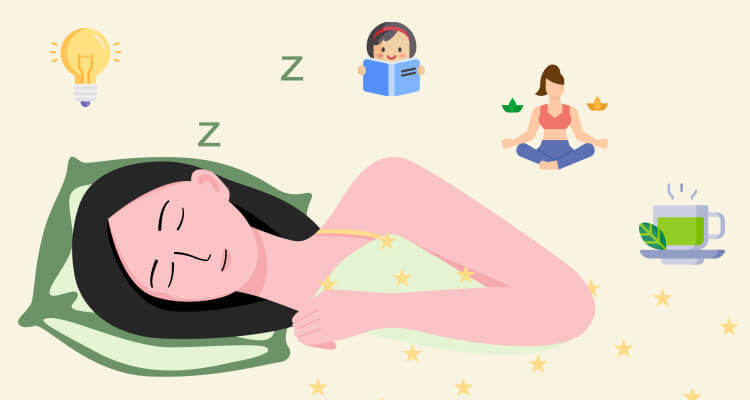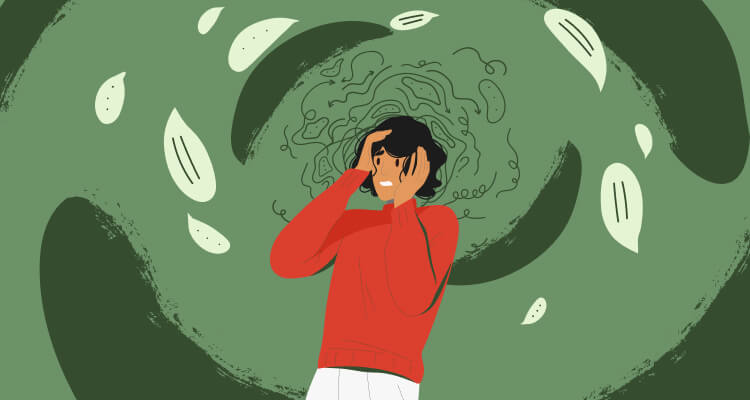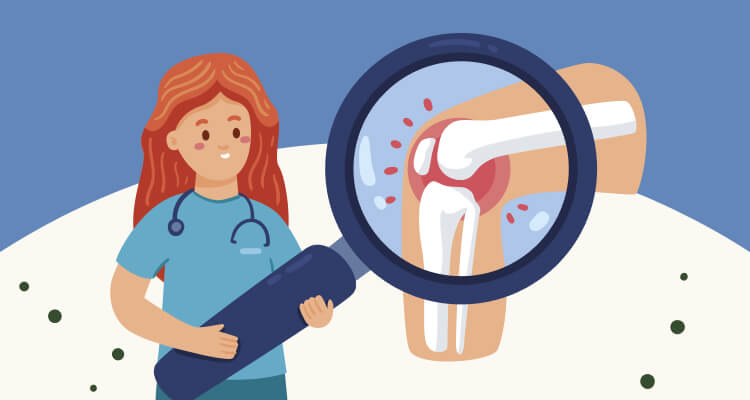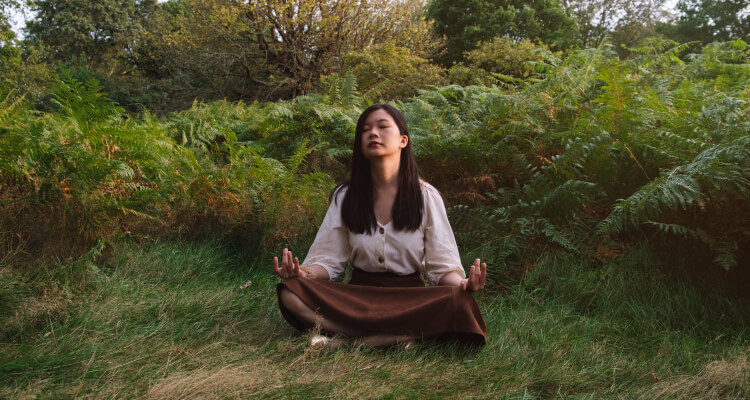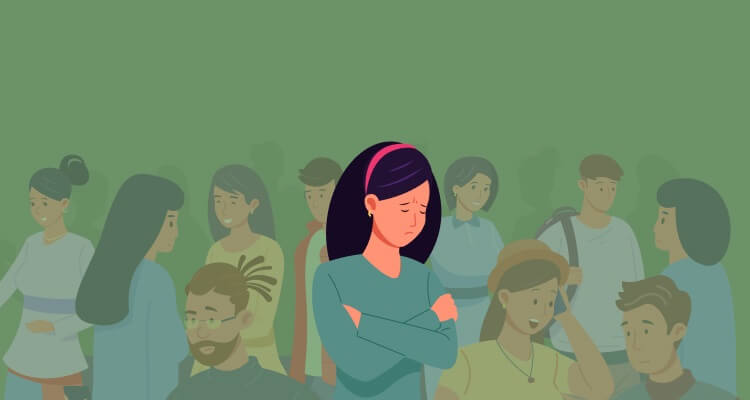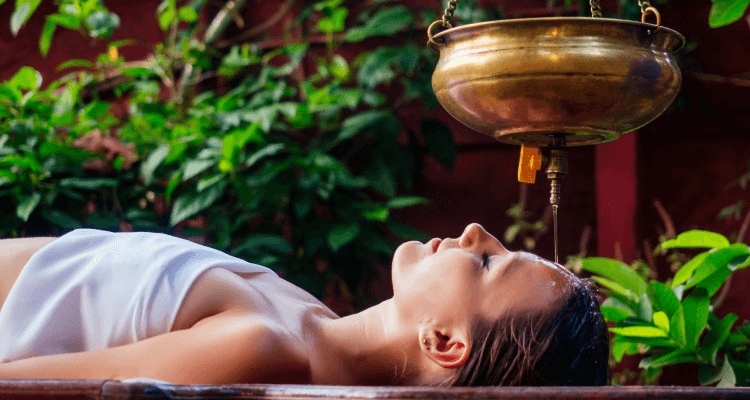What You’ll Learn in this blog:
Anxiety is a common part of life, manifesting as feelings of worry, nervousness, or fear. It’s natural to feel anxious before a big event, such as a job interview or public speaking. However, for many people, anxiety goes beyond occasional worry and becomes a persistent and overwhelming condition that affects their daily lives.
In simple terms, anxiety disorders involve excessive, irrational fear or dread that doesn’t go away. According to the Anxiety and Depression Association of America (ADAA) report, Generalized Anxiety Disorder (GAD) affects 6.8 million adults in the U.S., but only 43.2% receive treatment.
Despite its prevalence, anxiety is often misunderstood, leading to the spread of myths that can be harmful to those who suffer from it.
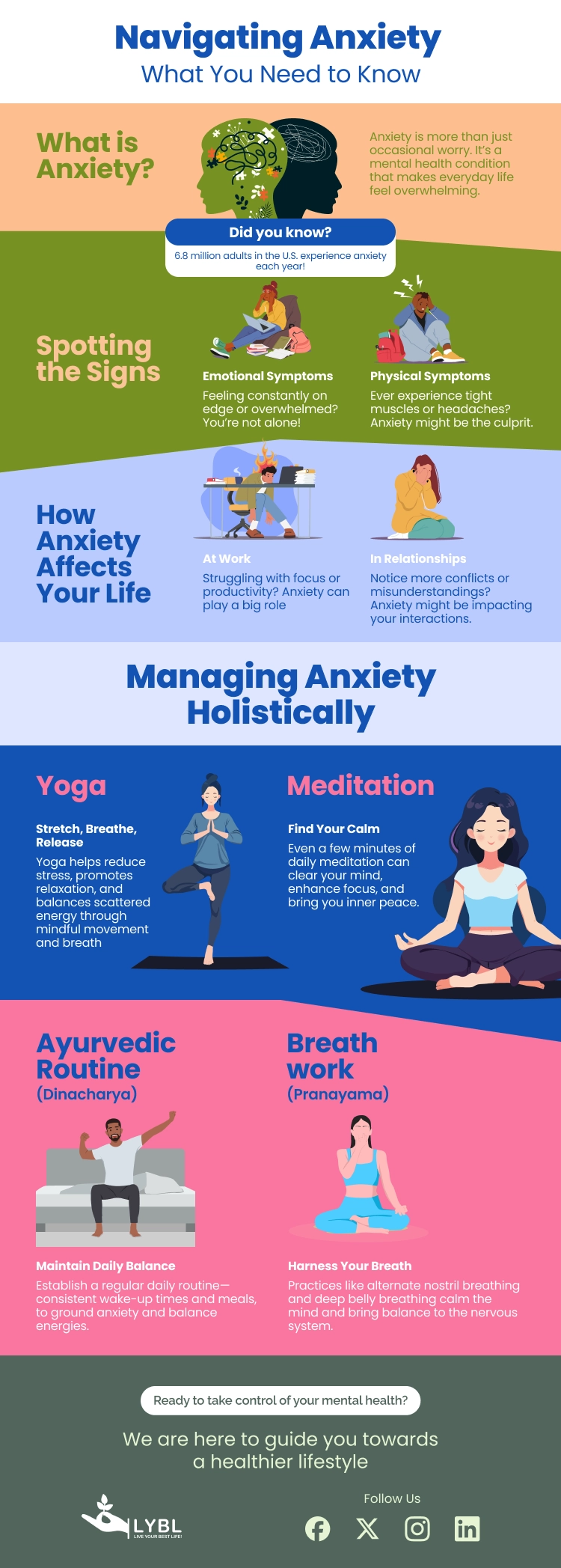
Let’s debunk five common myths about anxiety to understand this condition.
Myth 1: Anxiety Is Just Being Stressed All the Time
Fact: Anxiety is a diagnosable and treatable psychiatric condition.
Stress and anxiety are often confused, but they are not the same. Stress is basically a response to an external stimulus and subsides once the problem is solved.
Anxiety, however, is more persistent and can occur without any identifiable cause. It’s a chronic mental health condition that involves ongoing worry, fear, and often physical symptoms such as a racing heart, sweating, and shortness of breath. Anxiety disorders, unlike temporary stress, usually require treatment, which can include therapy, medication, or a combination of both.
Myth 2: Anxiety Will Go Away on Its Own If You Ignore It
Fact: Anxiety symptoms are ongoing and typically need treatment to diminish.
Unlike occasional anxiety that might fade after a stressful event passes, anxiety disorders are chronic conditions. Neglecting anxiety symptoms won’t make them vanish; instead, it can cause them to intensify over time.
Effective management often involves a holistic approach, including Ayurvedic treatments. Ayurveda emphasizes balancing the body and mind through practices such as meditation, herbal remedies, and dietary adjustments.
Techniques like Shirodhara (a calming therapy where warm oil is poured on the forehead) and herbal supplements such as Ashwagandha and Brahmi can help manage anxiety by calming the nervous system and promoting mental clarity. Recognizing anxiety as a medical condition that needs attention is the first step toward effective and natural relief.
Myth 3: People With Anxiety Should Simply Steer Clear of Stressful Situations
Fact: Stress is a natural part of life; anxiety treatments can equip people with better strategies to manage and cope with stressful situations.
It might seem like avoiding stress would help manage anxiety, but stress is an inevitable part of life. Avoidance can actually reinforce anxiety by making feared situations seem even more daunting. Instead, treatments like exposure therapy, which gradually introduces people to stressful situations in a controlled environment, help reduce anxiety over time. Learning to face and cope with stress, rather than avoiding it, is a key part of anxiety management.
Myth 4: Anxiety Disorders Are Rare
Fact: Anxiety is the most commonly experienced mental health disorder.
Despite the misconception that anxiety disorders are uncommon, they are, in fact, the most widespread mental health issues in the United States. In the United States alone, about 31.1% of U.S. adults experience an anxiety disorder each year. Despite their frequency, anxiety disorders are often misunderstood, leading to underdiagnosis and undertreatment.
Recognizing how common anxiety is can help reduce stigma and encourage more people to seek the help they need, whether through therapy, support groups, or holistic approaches like yoga and Ayurveda.
Myth 5: You Can Only Manage Anxiety with Medication
Fact: There are many ways to treat anxiety disorders, including yoga, Ayurveda, lifestyle changes, exercise, and more.
While medication can be a valuable tool for managing anxiety, it’s not the only option available, especially for those seeking a more holistic approach. In the U.S., there’s growing recognition of the benefits of integrating mind-body practices like yoga and Ayurveda into anxiety treatment plans.
Yoga, with its focus on breath control, meditation, and physical postures, helps reduce stress and improve mental clarity. Practices like breathing exercises and yoga postures are known to calm the mind and reduce the physiological symptoms of anxiety. Ayurveda, an ancient Indian system of medicine, offers a personalized approach to managing anxiety through dietary recommendations, herbal supplements like Ashwagandha, and treatments such as therapeutic oil massage.
In addition to these practices, lifestyle changes like regular exercise, maintaining a balanced diet rich in whole foods and ensuring adequate sleep can significantly alleviate anxiety symptoms. Techniques such as mindfulness meditation and spending time in nature are also gaining popularity as effective ways to manage anxiety without relying solely on medication.
Get a Fresh Approach to Navigating Anxiety with Us
Understanding anxiety goes beyond dispelling myths; it’s about adopting a new perspective that embraces self-compassion and mindfulness. Picture anxiety not as an enemy but as a part of your life that you can approach with resilience and grace.
Here’s how you can shift your mindset and make anxiety management a more engaging and empowering experience:
Self-Compassion: Offer yourself the same kindness and understanding that you would provide to a friend. This gentle approach can transform your experience, making anxiety less of a burden and more of a manageable challenge.
Mindfulness Practices: Embrace techniques like mindfulness and meditation to stay present and observe your thoughts without judgment, which can help you respond to stress with calm and clarity rather than being overwhelmed by it.
Holistic Strategies: Combine these practices with holistic approaches such as yoga and Ayurveda to create a comprehensive plan for your mental well-being. Yoga’s focus on breath control and physical postures, along with Ayurvedic remedies, can support mental clarity and emotional balance.
At Live Your Best Life (LYBL), we’re dedicated to supporting you on this journey. Our blend of expert consultations, therapeutic yoga, and personalized packages is designed to help you achieve a fulfilling life.
Join us at LYBL to explore a path that combines compassion, mindfulness, and holistic care. Transform your relationship with anxiety and unlock a life where well-being is within your reach.
Download the app today!

